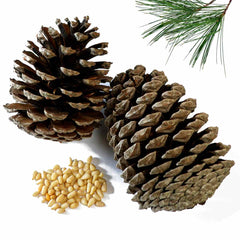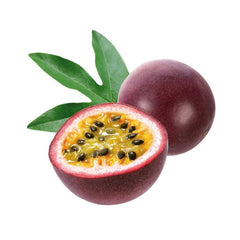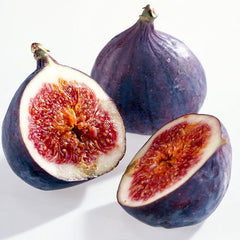Do Oriental Perfumes Smell Sweet?
Click For Affordable Inspired Perfume Alternatives
Perfume preferences are deeply personal and often influenced by cultural, historical, and individual tastes. Among the many fragrance families, Oriental perfumes stand out for their rich, warm, and exotic scent profiles. A common question that arises among fragrance enthusiasts and newcomers alike is whether Oriental perfumes tend to smell sweet. To understand this, it’s essential to explore what characterizes Oriental fragrances, their typical scent notes, and how sweetness plays a role in their composition. In this article, we delve into the world of Oriental perfumes and clarify whether they generally exude a sweet aroma.
Do Oriental Perfumes Smell Sweet?
Oriental perfumes are renowned for their opulence, depth, and warmth. They often evoke images of distant lands, spices, and luxurious textiles. While the term “sweet” can be subjective and varies depending on personal perception, many Oriental fragrances do incorporate sweet elements. However, the presence and intensity of sweetness can differ significantly based on individual formulations and scent compositions. To understand whether Oriental perfumes typically smell sweet, we need to examine their common ingredients and scent profiles.
Understanding Oriental Perfumes
Oriental perfumes, also known as Amber fragrances, are characterized by their warm, rich, and often spicy notes. They originated from Middle Eastern, Indian, and Asian fragrance traditions, blending exotic ingredients that create a luxurious sensory experience. These fragrances are often complex compositions, combining various notes that can include spices, resins, woods, and sweet accords. The defining features of Oriental perfumes include:
- Warmth and Richness: They evoke a cozy, enveloping sensation.
- Spicy and Resinous Notes: Such as cinnamon, cardamom, frankincense, and myrrh.
- Sweet Accords: Often present, but vary in sweetness intensity.
- Deep Base Notes: Including amber, vanilla, musk, and woods.
While these perfumes are distinguished by their depth and complexity, the element of sweetness is often intertwined with other scent notes to create a balanced and alluring fragrance. But is sweetness a defining characteristic? Not necessarily; it depends on the specific perfume formulation.
Are Oriental Perfumes Naturally Sweet?
Many Oriental perfumes include sweet ingredients, but they are typically used to enhance warmth and richness rather than to produce a purely sweet scent. The sweetness in these fragrances often comes from ingredients such as:
- Vanilla: Adds a creamy, sweet, and comforting note.
- Amber: Provides a warm, resinous sweetness.
- Honey and Balsams: Impart a natural, sweet aroma.
- Sweet Spices: Like cinnamon and cardamom, which can have subtly sweet undertones.
However, not all Oriental perfumes are overtly sweet. Some lean more towards spicy, woody, or smoky profiles with minimal sweet notes, creating a more austere or mysterious aura. The degree of sweetness varies depending on the perfume’s intended mood and target audience.
The Spectrum of Sweetness in Oriental Fragrances
To better understand whether Oriental perfumes smell sweet, it’s helpful to recognize the spectrum they encompass:
- Highly Sweet Orientals: These fragrances prominently feature vanilla, honey, and sweet balsams, making them very sweet and gourmand-like. Examples include perfumes with prominent vanilla accords or gourmand oriental scents.
- Moderately Sweet Orientals: These combine spicy and resinous notes with subtle hints of sweetness, offering a balanced and sophisticated scent. Many classic Oriental fragrances fall into this category.
- Slightly Sweet or Unsweetened Orientals: Focus more on spices, woods, and resins, with minimal or no sweet notes, emphasizing warmth and depth without overt sweetness.
The diversity within the Oriental family means that whether a perfume smells sweet depends largely on its specific composition and the perfumer’s vision.
Examples of Oriental Perfumes and Their Sweetness Levels
Examining popular Oriental perfumes can provide clarity on their typical scent profiles:
- Yves Saint Laurent Opium: Features rich spices, resins, and a touch of sweetness from vanilla and amber—moderately sweet.
- Tom Ford Tobacco Vanille: Combines smoky tobacco with a prominent vanilla note, resulting in a gourmand, sweet aroma.
- Guerlain Shalimar: Classic oriental with vanilla, iris, and spices—definitely on the sweeter side.
- Amouage Interlude Man: Focuses more on smoky, resinous notes with less emphasis on sweetness, leaning toward a bold, complex profile.
- MUGLER Alien: Incorporates amber and woody accords with a sweet, floral undertone—moderately sweet.
As seen in these examples, many popular Oriental fragrances feature a sweet core, but the degree of sweetness varies widely, showcasing the versatility within this scent family.
Conclusion: Do Oriental Perfumes Smell Sweet?
In summary, Oriental perfumes often contain sweet notes and accords, which contribute to their warm, rich, and inviting character. However, not all Oriental fragrances are overtly sweet; some emphasize spicy, woody, or resinous elements, creating a more complex and less saccharine scent profile. The perception of sweetness in an Oriental perfume depends on its specific ingredients and formulation. Whether you prefer a gourmand, vanilla-laden scent or a more mysterious, spicy aroma, the Oriental family offers a broad spectrum of options to suit different tastes. Ultimately, Oriental perfumes can smell sweet, but they are equally capable of delivering deep, smoky, or spicy experiences—making them one of the most versatile and intriguing fragrance families available today.
Buy Perfumes - Best Online Retailers
Click For Affordable Inspired Perfume Alternatives
Click For The Best Niche Perfumes & Decants
Pheromone Perfumes - Confidence, Attraction & Appeal - Click For More
Home Fragrances & Candle Warmers - Click To Scent Up Your Spaces Today!



